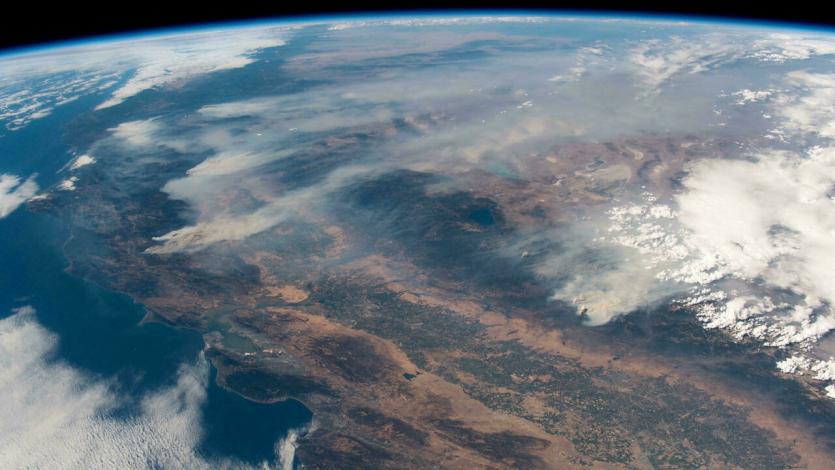This handout picture obtained from the European Space Agency (ESA) on August 7, 2018 shows a view taken by German astronaut and geophysicist Alexander Gerst, showing wildfires in the state of California as seen from the International Space Station on August 2, 2018. Photo:Alexander Gerst/AFP
By Patryk Krych | The World Daily | AUGUST 9th 2021
The latest findings of the United Nation’s Intergovernmental Panel on Climate Change (IPCC), which had been approved by 195 member states on Friday, found that the issue of climate change will only deepen across the coming decade, across all regions.
What the report found was rather concerning, projecting that the limiting of global temperatures to the necessary 1.5 degrees Celsius, or even to 2 degrees Celsius above pre-industrial levels may be “beyond reach” within the next two decades unless the worldwide response to climate action is both immediate and strong.
“Today’s IPCC Working Group 1 Report is a code red for humanity,” said António Guterres, the United Nations Secretary-General. “The alarm bells are deafening, and the evidence is irrefutable: greenhouse gas emissions from fossil fuel burning and deforestation are choking our planet and putting billions of people at immediate risk.”
The goal of limiting global temperature rise to the 1.5 degrees Celsius threshold by 2050 is a necessary one, if we are to avoid several so-called ‘tipping points’ – irreversible changes to our climate and environments, which are more likely to occur if greenhouse emissions remain as they are now.
If some of these irreversible tipping points were to be met, further instances of global heating will be locked in, contributing to the problem further. The report added that if it were only limited 2 degrees Celsius, then global agriculture and health sectors would be reaching their critical thresholds more often.
The results of certain environmental changes may include more intense rainfall with leads to larger instances of flooding, as well as increased drought risks – results often varying by the region.
“It has been clear for decades that the Earth's climate is changing, and the role of human influence on the climate system is undisputed,” said the co-chair of the IPCC's Working Group I, Valérie Masson-Delmotte.
The report had also found that as climate change is continually intensifying and growing out of control, it has already come to affect every region on the planet in some way. It’s the IPCC’s strongest report on global warming since 2013, and states that it’s “unequivocal that human influence has warmed the atmosphere, ocean and land.”
“It is virtually certain that hot extremes (including heat waves) have become more frequent and more intense across most land regions since the 1950s, while cold extremes (including cold waves) have become less frequent and less severe,” the authors wrote in the report, which has gone further to prove the link between human-propelled climate change with the recent bouts of extreme weather felt all around the world than any report before it.






